6 things to consider before buying an investment property
January 14, 2020
Growing up in a family that scrimped and saved to successfully invest as much as possible in real estate created a passion for me in the real estate industry and a real interest in investing. After the last real estate crash, with cash to invest and confidence in the long-term strength of the real estate market, I was ready to look for some great investment opportunities.
While a licensed broker in Virginia, I found the cost of real estate high in the area compared to the low rents at the time and that led me to seek investments outside of the D.C. area. I was already well invested in the Montreal market and my search eventually led me to North Florida in 2010.
Florida was one of the states that lost the greatest value in their real estate during the crash. Most of the loss was due to the large number of second homes and vacation rental properties. While North Florida has a completely different economy than most of Florida, it was equally affected price-wise. This led to some incredible bargains, while still offering a strong rental market. A perfect opportunity. The rent-to-value ratios were terrific. Additionally, the Jacksonville area is easy to fly in and out of - an important consideration if you’re going to invest in property outside of your home area.
Investment properties are a great way to diversify your portfolio and bring in additional revenue streams. You have to be careful to make the right decisions though. If you’re a novice investor or just too busy to manage all aspects of the rental, an experienced team is critical in helping you make the right decisions. Long-term tenants are of great value to an investor and the key to long-term tenants is keeping them happy. Having a good property manager can help with that. It’s mandatory if you’re buying property outside of your home area too.
After managing investment properties for others and myself, I've discovered there are 6 top questions you need to consider before moving forward with the purchase of a new investment property.
HAVE YOU DONE A THOROUGH INSPECTION?
No matter how experienced you are in property maintenance, it is worth hiring a great inspector to find the hidden problems. Even with my almost thirty years of experience, I found a lot of unpleasant and very expensive surprises when I purchased homes built in the 1890’s in the St. Augustine area. I don’t regret the purchases, but I do regret not knowing the full scope of work ahead of time.
IS THE PROPERTY IN AN AREA WITH A HIGH DEMAND FOR RENTALS?
A good home to live in is not always the best rental property.
Renters are less likely to compromise in what they want and they have lot of options out there in the market. Factor in the quality of the schools, nearby transportation options, ease of shopping, gyms, neighborhood feel, parking, HOA requirements and more. Get help from an experienced team who can communicate what prospective tenants are most often looking for and what communities seem to have the greatest appeal.
IS THE HOUSE IN GREAT CONDITION?
A home in excellent condition is more likely to rent than one that needs to be fixed up. If you don’t want to do a lot of after-purchase renovations, consider the condition and appeal of the home ahead of time. If you’re buying it to live in, you’re more likely to plan to renovate throughout the years. Don’t buy a dated home for a rental property unless you plan to renovate before putting it on the rental market.
WILL IT COST A LOT IN UPKEEP?
Understand the value of maintenance.
To successfully rent your property, year after year and get a good return on your investment, upkeep is critical. You want the property to have appeal. Many times, you’ll wonder if you really want to spend money on maintenance. The answer is YES. Deferred maintenance costs thousands in the decrease in the value of the property as well as its rental income potential. A home that is well maintained will always be worth more, and it costs less to do the maintenance on an ongoing basis throughout the year.
Paint the outside before it starts to peel. It will ward off wood rot and will keep the house looking good. Wait until it peels and the cost will be considerably more and the paint will often no longer stick as long. Upgrade and maintain on your own schedule instead of waiting until it gets to a crisis point.
Generally, without tenant turnover, you should put aside a month’s rent a year in a fund for maintenance. Tenant turnover creates more cost. Some years, you’ll spend more, some years, less. That’s just a vague rule-of-thumb.
WHAT IS THE RENT-TO-VALUE RATIO AND MONTHLY CASH FLOW?
Consider the rent-to-value ratio and the monthly cash flow.
Don’t focus solely on appreciation. A large negative cash flow each month reduces the value your investment. I’m a conservative investor. I assume that there will be fluctuations in both the rental and sales market. I want to have the cushion that the rent can drop and I still have the cash flow to cover the mortgage and related costs. That doesn’t mean a small negative cash flow should stop you from investing. This is a long-term investment and if you are comfortable handling the risk and the costs ahead.
Don’t make an investment that you can’t afford to carry for at least three months without income, while still paying your other bills. Some recommend having six months in reserve, just in case.
HAVE YOU INVESTIGATED 1031 EXCHANGES?
Like-kind exchanges of one piece of real estate for another piece of real estate can offer huge tax benefits for investors. Do you already own a piece of property you’d like to sell and roll the proceeds into a new property? The 1031 Exchange is a great program. Research the rules, but make sure you work with a broker who also understand the rules, have participated in a number of exchanges and is also familiar with the timelines and paperwork involved. I’ve successfully done several personally and have worked with many clients in the 1031 process.
SUMMARY
Investing in property can be rewarding, exciting and lucrative or it can be challenging, expensive and disappointing. The prep work you put in generally matches the output and as with just about anything, the team you work with can make all the difference in the outcome.
I strongly believe that investment real estate should be one of the cornerstones of a sound financial investment plan. Diversity is key in investing. Just as you can hire an excellent financial planner to help you map out the future investment plans, a good real estate broker and experienced property manager can help that investment be properly maintained and maximize the income you receive, with fewer headaches.
Delegate those time-consuming tasks to allow you to focus on your own career and your own life. Get input to help confirm you’re making the right investment. That’s what hiring a property manager helps you to do.
Lindsey Peake is the President and Principal Broker at Peake Management, Inc., a property management company in Northern Virginia.





